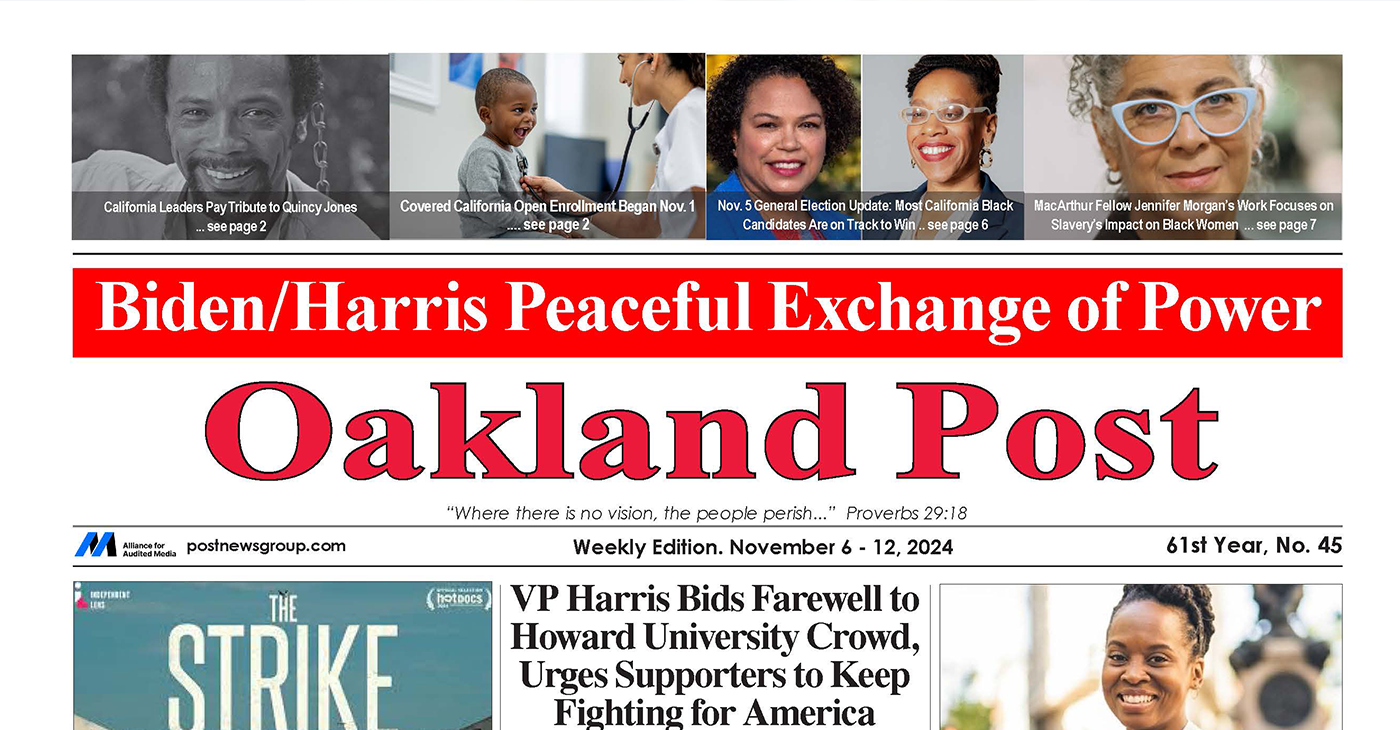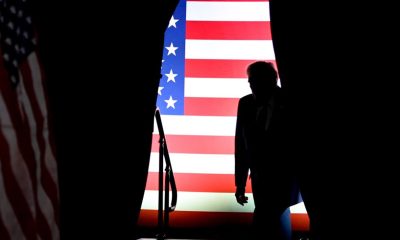National
Rainbow PUSH Wall Street Project Conference Opens Tuesday
WASHINGTON (NNPA) – After making Silicon Valley’s boldest commitment to diversity, Intel CEO Brian Krzanich will headline Rainbow PUSH Wall Street Project’s 18th annual convention next week in New York City.
Krzanich will be part of a one-on-one conversation Tuesday, Jan. 13, the first day of the 3-day conference, with Rainbow PUSH founder Jesse L. Jackson, Sr. at the Sheraton New York Hotel at 53rd Street and 7th Avenue.
The high tech CEO made headlines when he recently announced at the Consumer Electronics Show in Las Vegas that his company is dedicating $300 million to expand diversity within the company. He said in five years, Intel’s workforce will reflect the percentage of people of color and women available in the market. To help reach that target, Krzanich said, executives of the company will see their individual compensation tied directly to the progress they make toward reaching that diversity goal.
In an interview with CNET, Krzanich explained, that he hasn’t worked out all of the details of the new plan.
“It will be hard. I think it’s going to be like what we do every two years – invent Moore’s Law,” Krzanich said, referring to Intel’s goal of doubling computer chips’ processing power every other year. “We don’t know how we’re going to do it. We go and put in the engineering effort and do what it takes. We’ll do the same thing here.”
In addition to Krzanich, other headliners include former Microsoft CEO Steve Ballmer, New York City Comptroller Scott M. Stringer; John W. Rogers, CEO of Ariel Investments; Bruce Lincoln and Clayton Banks, co-founders of Silicon Harlem; Earl G. Graves, Jr., president and CEO of Black Enterprise; Peggy Wallace, managing partner of Golden Seeds Fund; Van Jones, co-host of CNN’s “Crossfire,” and retired NBA All-Star Tracy McGrady.
The fifth annual session on the business of Hip Hop will feature former Los Angeles gang leader Freeway Rick Ross and Tony Neal of the Core DJs. Jineea Butler, founder of Hip Hop Union and a columnist for the NNPA News Service, will be among those honored at the summit.
Honorary Summit Co-Chair Cloves C. Campbell, Jr., publisher of the Arizona Informant and chairman of the National Newspaper Publishers Association (NNPA), said: “We’re honored to be a part of this year’s Wall Street Project and to show our appreciation for the tremendous work Rev. Jackson has done holding Wall Street, Silicon Valley and Corporate America accountable for maintaining the diversity that makes our nation so great.”
For more information, go to: http://www.rainbowpushwallstreetproject.org.
###
Activism
Oakland Post: Week of November 13 – 19, 2024
The printed Weekly Edition of the Oakland Post: Week of November 13 – 19, 2024

To enlarge your view of this issue, use the slider, magnifying glass icon or full page icon in the lower right corner of the browser window. ![]()
Activism
Oakland Post: Week of November 6 – 12, 2024
The printed Weekly Edition of the Oakland Post: Week of November 6 – 12, 2024

To enlarge your view of this issue, use the slider, magnifying glass icon or full page icon in the lower right corner of the browser window. ![]()
#NNPA BlackPress
OP-ED: The Illusion of Allyship. White Women, Your Yard Signs Mean Nothing to Me
NNPA NEWSWIRE – “The blue bracelets are something White women are wearing so others can see that they didn’t vote for Trump,” says Liberal Lisa from Oklahoma on X. Chile, bye. These bracelets are hollow symbols, empty gestures that mean nothing to me. An accessory to claim distance from Trump’s legacy is superficial comfort, while the choice to not stand with us in the voting booth is far more profound.

Political yard signs can symbolize intentions and allegiance. But this year, they’ve also symbolized betrayal. During this general election, Black women were led to believe that more White women would stand with us. Exit polls, however, told a different story. Despite overwhelming displays of support, more White women still chose to vote for the convicted felon, reality TV star, and rapist. White women answered the call but left us hanging at the polls.
A Familiar Disappointment
I live in DeKalb County, Georgia, and the abundance of Harris-Walz yard signs could’ve fooled me. But I’ve seen this before, back when Stacey Abrams ran for governor. White women showed up, put up signs, attended rallies, knocked on doors, and phone-banked. Yet, when it came time to vote, they let us down—not once but twice. I’ve been here for over 15 years, and if there’s one thing I know, it’s that political signs are symbols without weight.
In every election, I’ve talked with White women. Most aren’t the primary earners in their families and vote along party lines, aligning with the preferences of their fathers and husbands. These conversations reveal a reluctance to break from tradition, even when their votes affect women and certainly when their votes impact the lives of people who look like me.
The Illusion of Solidarity—Symbols Are Not Enough
On social media, I’m seeing White women posting pictures of blue bracelets to “prove” they didn’t vote for Trump. “The blue bracelets are something White women are wearing so others can see that they didn’t vote for Trump,” says Liberal Lisa from Oklahoma on X. Chile, bye. These bracelets are hollow symbols, empty gestures that mean nothing to me. An accessory to claim distance from Trump’s legacy is superficial comfort, while the choice to not stand with us in the voting booth is far more profound.
I’ve seen Black Lives Matter signs and black squares posted on Instagram to “prove” support for Black people, but we now know that was a lie, too. Will those same people who claimed Black lives mattered now take down their Harris-Walz signs and show their true selves?
Navigating these truths is a daily struggle for me—professionally and socially. White women often misuse their privilege, supporting us only when it’s convenient. Seeing overqualified Black women sabotaged or abandoned by White women at critical moments is a constant emotional challenge. It’s exhausting to live with this reality, especially when solidarity seems like something they pick up and discard at will.
One clever campaign ad from Harris-Walz that spoke directly to White women. “Your Vote, Your Choice” emphasized that their vote was private—independent of their household situation. Another was from Olivia Howell Dreizen, the “Vote Without Fear” campaign, which empowered women to consider the greater impact of their choices. But it seems many still couldn’t choose the roadmap to freedom—even when it was handed to them.
A Call for Action Beyond Words
White women, I want to believe you care, but actions speak louder than yard signs, bracelets, or Instagram posts. Show up in our communities, advocate in your workplaces, and stand up to dismantle the structures that uphold white supremacy. Only through real action will we know where you stand.
If you choose not to act, we see you—and we know exactly where you stand. Good luck these next four years.
Disclaimer: The views and opinions expressed in this article do not necessarily reflect the official policy or position of BlackPressUSA.com or the National Newspaper Publishers Association.
-

 Alameda County4 weeks ago
Alameda County4 weeks agoAlameda County District Attorney Pamela Price Announces $7.5 Million Settlement Agreement with Walmart
-

 Activism3 weeks ago
Activism3 weeks ago‘Jim Crow Was and Remains Real in Alameda County (and) It Is What We Are Challenging and Trying to Fix Every Day,’ Says D.A. Pamela Price
-

 Bay Area3 weeks ago
Bay Area3 weeks agoIn the City Attorney Race, Ryan Richardson Is Better for Oakland
-

 Activism3 weeks ago
Activism3 weeks agoOakland Post: Week of October 30 – November 5, 2024
-

 Alameda County3 weeks ago
Alameda County3 weeks agoD.A. Price Charges Coliseum Flea Market Vendors in Organized Retail Theft Case
-

 Activism3 weeks ago
Activism3 weeks ago‘Criminal Justice Reform Is the Signature Civil Rights Issue of Our Time,’ says D.A. Pamela Price
-

 Activism3 weeks ago
Activism3 weeks ago“Two things can be true at once.” An Afro-Latina Voter Weighs in on Identity and Politics
-

 Arts and Culture3 weeks ago
Arts and Culture3 weeks agoMacArthur Fellow Jericho Brown’s Poetry Reflects Contemporary Culture and Identity






















































